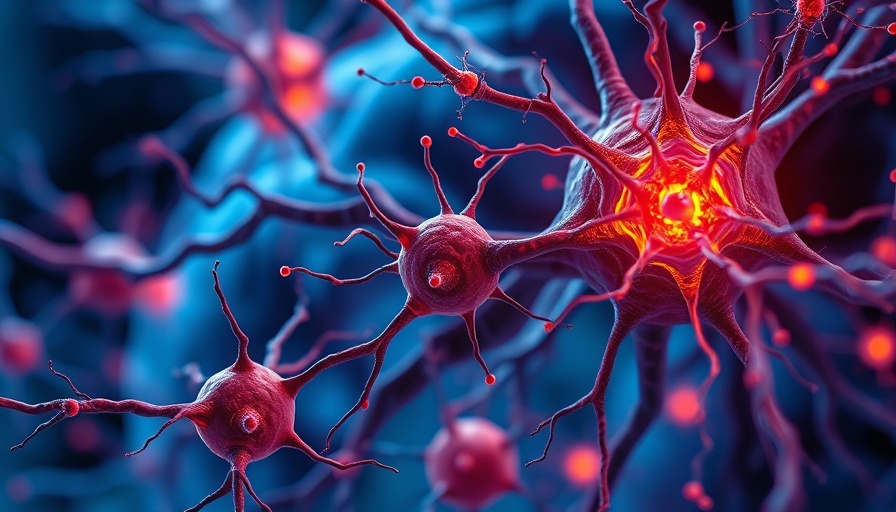
The Surprising Role of Astrocytes in Brain Function
An often-overlooked type of cell in the brain, known as astrocytes, has been shown to play a crucial role in how we process information. New research from the Oregon Health & Science University reveals that these star-shaped glial cells are not merely support structures, as previously believed, but rather active participants in information transmission, impacting neurophysiology and behavior.
Understanding Astrocytes: The Brain's Unsung Heroes
Astrocytes constitute about 35% of all cells in the human brain, making their role pivotal in orchestrating various brain functions. This study published in the journal Science provides direct evidence of astrocytic activity in real-time, utilizing models in fruit flies and rodents. Lead author Kevin Guttenplan emphasizes the evolutionary significance of astrocytes: they help the brain rapidly adjust in urgent situations—like deciding when to flee from a predator.
From Supporters to Signal Transmitters
Historically, astrocytes were viewed as supportive elements that merely nourished neurons. However, this research sheds light on their capability to transmit signals between neurons actively. They do this through a complex mechanism which allows them to respond selectively to neurotransmitters like dopamine and glutamate. Such responsiveness enables them to manage communication across numerous synapses, making sense of the brain's dynamic information flow.
The Implications for Mental Health
This breakthrough could reshape approaches to mental health therapies, particularly for conditions related to attention, anxiety, and mood. By understanding how astrocytes modulate neural circuits, clinicians and researchers may develop more effective treatments that address the underlying mechanisms rather than just symptoms.
Future Directions in Neurobiology
The insights gained from the study underscore the need for a paradigm shift in how we perceive glial cells. As researchers continue to explore the nuances of astrocytic functions, the implications for both biological and psychological health are profound. The study encourages a re-examination of existing neuroscientific theories, paving the way for innovative research in brain function and therapeutic interventions.
 Add Row
Add Row  Add
Add 




 Add Row
Add Row  Add
Add 



Write A Comment